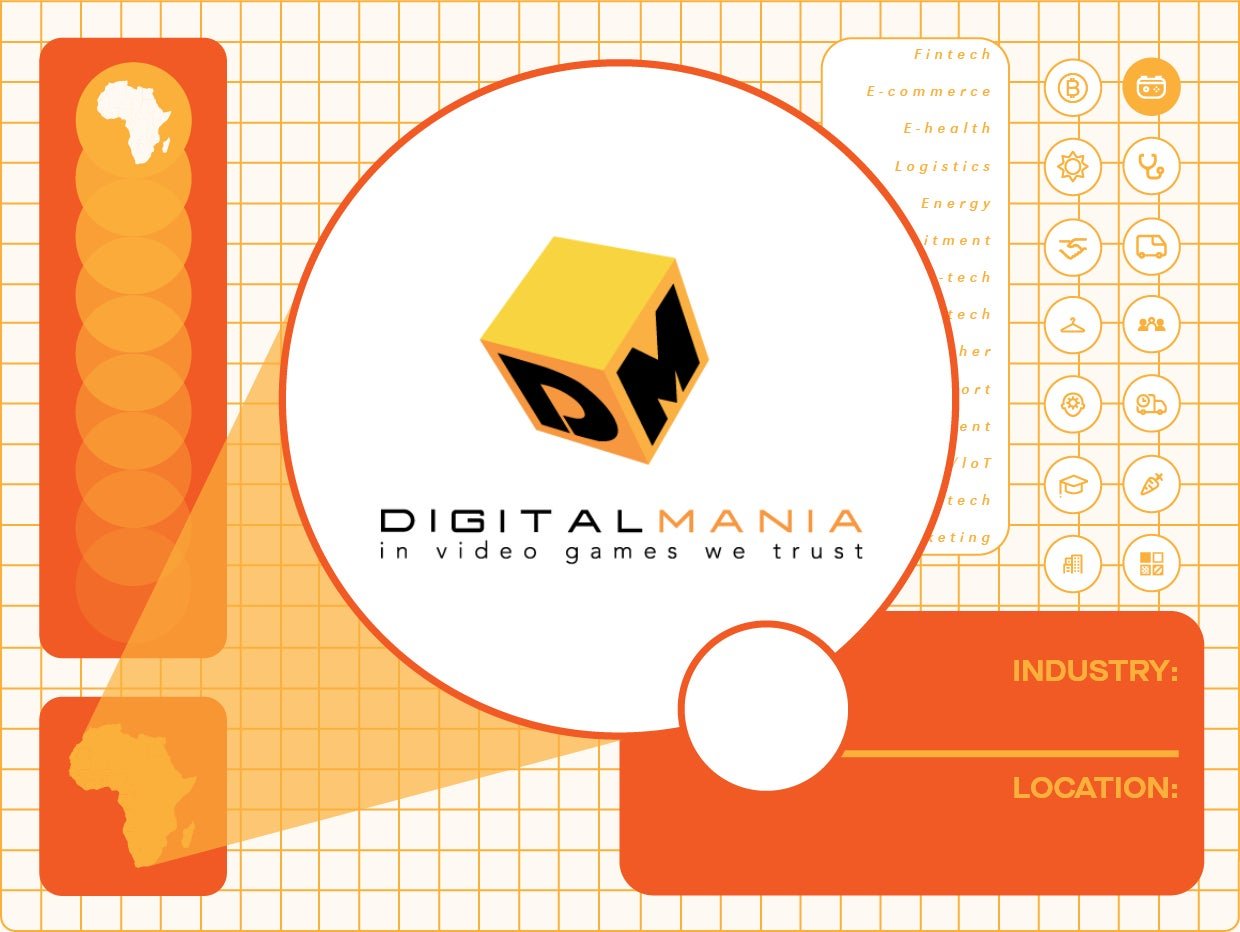✦ African games go global
The transformation of Africa’s gaming


Hi Quartz Africa members,
We will be taking a one-week break from the Quartz Africa Member Brief, but will be back in your inboxes on Wednesday, Dec. 6.
Gaming is increasingly popular in Africa, with roughly 40% of South Africans having played some kind of online or video game, according to a new PwC report. This figure is at 23% in Nigeria and 22% in Kenya.
The gaming sector has shown strong growth in the post-pandemic era, with revenues in South Africa hitting $327 million in 2021, compared to $262.4 million the previous year. In Nigeria, they rose to $271 million from $200 million, and in Kenya to $125 million from $111 million.
The biggest driver of this growth is increasing smartphone penetration and internet access, as the majority of African gamers play on their mobile devices sincePCs and consoles are generally more expensive and harder to access. The commercial rollout of 5G in several African markets is set to fuel further growth.
The larger gaming ecosystem in Africa is also expanding, thanks to greater collaboration and investment in recent years. More game developers, studios, esports players, and tournaments are emerging across the continent, helping to drive interest. For instance, Mekan Games, a Kenyan game development studio founded by Evan Kiragu, made history this year when its game Mr President topped global games charts on both Android and Apple stores, earning the studio over $1 million. The quirky game allows you to play a fictional leader and make decisions such as banning “Netflix and chill,” or making all citizens do the chicken dance.
Jay Shapiro, founder of the Nairobi-based Usiku Games and Chair of the Pan-African Gaming Group (PAGG), is optimistic about the future of gaming in Africa. Explaining why eight studios from different parts of Africa came together under PAGG, Shapiro says that building capacity was the first step towards strengthening the gaming ecosystem in Africa. Shapiro believes that locally relevant mobile games will be the defining face of gaming on the continent.
“Because of the mass of opportunity in Africa, all of the big international game studios are coming to Africa,” Shapiro told Quartz. “In the next five years, they will all be here. None of us as individual studios are big enough to compete with Ubisoft or Microsoft for example…But together we can do co-productions and large-scale games for publishers and IP owners we’d never have access to individually.”
The gaming market in Africa is still constrained by numerous challenges, but it also faces huge potential for growth thanks to the continent’s population, the youngest in the world.
Cheat sheet
💡 The opportunity: The gaming market in Africa is fast growing, thanks to increasing smartphone access and internet penetration, creating opportunities for developers to tap into an emerging market.
🤔 The challenge: There is under-investment in the gaming sector, a small number of game developers and studios, as well as low internet penetration and smartphone access in some parts of the continent.
🗺️ The roadmap: Game developers in Africa need to create locally relevant games, and collaborate with other stakeholders to achieve more and strengthen the larger ecosystem.
💰 The stakeholders: Game development studios, game developers, investors, startups, policy-makers, gamers.
$1 billion: Annual revenue from video games in Africa
$327 million: Revenue from video games and esports in South Africa in 2021
$271 million: Revenue from video games and esports in Nigeria in 2021
$125 million: Revenue from video games and esports in Kenya in 2021
Case study
As early as 2004, while still in engineering school, Walid Sultan Midani was helping to organize some of the earliest esports tournaments in Tunisia and, later, in countries including France and the US. In 2009, the financial crisis hit tournaments hard as sponsors slashed their marketing budgets, inspiring Midani to start thinking of a gaming business that didn’t rely on brand sponsorships.
This led him to establish DigitalMania, a game development studio officially launched in 2011 during the Tunisian revolution. DigitalMania’s titles thus far include a team-building VR game called Infinite Loop and a fun, fast-paced multiplayer shooting game called Warshmallows.
Companies such as Google, Apple, PwC, KPMG, and ExxonMobil have played Infinite Loop since its release, using it to foster collaboration between employees. In teams, people have to solve various fun challenges, either using VR headsets or in an online environment.
In Warshmallows, players face off in online battles in a multiplayer shooting game starring cute marshmallow characters. Warshmallows is available on Nintendo Switch, Steam, and the Epic Games Store.
Midani thinks mobile phones represent the future of gaming in Africa, and he cautions against stereotypes and misconceptions about who a gamer is. Total smartphone connections in Africa are projected to hit 700 million in 2025. As a result, “a 40-year old lady playing Candy Crush is a gamer for us. It’s a very fragmented market,” Midani told Quartz.
According to Midani, African developers face several challenges, not least integration and distribution via major game publishers and stores. Enabling in-game transactions, for example, can be difficult when over 40 different currencies serve the continent and only a few markets are served by major publishers and distributors.
Midani also cites a lack of adequate investment in gaming and esports as a massive challenge for the still young gaming ecosystem in Africa. Game developers struggle with aspects such as promotion and marketing, a key feature of successful international game releases today.
Midani believes collaboration among industry stakeholders is central to unlocking the massive potential of gaming in Africa. It’s why DigitalMania is one of the eight independent game studios that form the Pan African Gaming Group (PAGG), an outfit working to build greater capacity for the gaming industry in Africa.
Midani believes that training and equipping new game developers will go a long way in guaranteeing African gaming’s long-term success. He also sees great potential in esports, and thinks that resources should be committed to train elite players who can win the biggest international prizes, which will in turn attract greater interest and investment in Africa’s gaming and esports scene.
In conversation with

🎮On the outlook for Africa’s gaming sector:
“We are the youngest continent. We are going to be one of the most connected continents, especially with 5G…The type of games is going to be key. It’s a mobile continent. A very small percentage are playing on PC and console, and even they play games on their phones as well.”
🆕On DigitalMania’s new multiplayer shooting game Warshmallows:
“The idea was to create a casual and competitive game that’s not just for hardcore gamers…It’s an accessible game with easy gameplay that’s still competitive.”
🤝On collaboration and the Pan-African Gaming Group (PAGG):
“PAGG is one way to bring solutions across the continent. I appreciate that it helps us understand different markets, bridging the gap, and we have people involved with every ecosystem.”
Gaming deals to 👀
Andreessen Horowitz, Avenir, and Google were among the participants as Carry1st, a Cape Town-based mobile gaming startup, raised a $20 million Series A extension round in January. Besides developing games such as Mine Rescue and Spongebob Krusty Cook-Off, it rolled out a proprietary payments system and online marketplace to improve its content monetization capabilities.
Metaverse Magna, a Nigerian blockchain gaming platform, raised a $3.2 million seed sale token round in September. Founded in December 2021, Magna has set itself the target of building Africa’s largest gaming (Decentralized Autonomous Organization) DAO.
Skrmiish, a South African ‘play-to-earn’ platform, raised a $2.5 million seed round in August. Combining gameplay and a sports betting service, Skrmiish allows players to sync their game accounts to get ratings based on performance data from games they’re already playing, determining how much they can earn from each match.
This member brief was prepared while listening to “Sweet One” by DJ Gibbzy and Buruklyn Boyz 🇰🇪. Have an amazing week!
—Martin Siele, Nairobi-based contributor
One 📶 thing
South Africa, Kenya, Ethiopia, Botswana, Seychelles, Nigeria and Zimbabwe are among the African countries to have launched 5G networks so far, with several others including Egypt, Gabon, Ghana, and Lesotho conducting trials.